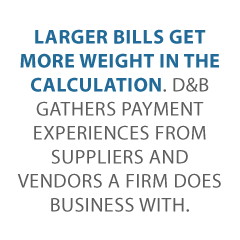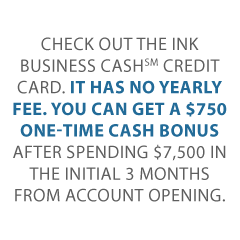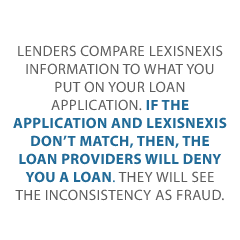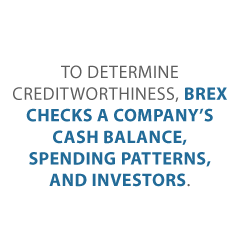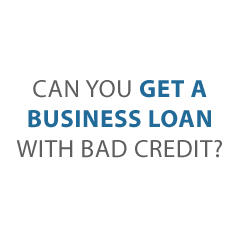
Credit is More Than a Score: How to Address a Derogatory Account on Credit Report When You’re Fighting a Public Record
Do You Have a Derogatory Account on Credit Report? Did You Know You Can Fix Issues in Your Public Records?
A derogatory account on credit report doesn’t have to sink your chances for getting business funding. But let’s start with fundability.
Fundability and Derogatory Account or More
Fundability is the ability of a business to get funding. This is everything from getting credit to business loans. Because every business needs money, it quite literally pays to enhance your fundability whenever and wherever you can.
Public Records and Any Derogatory Account
In addition to how well your business pays its bills, and your personal credit score, and whether your industry is a risky one, there’s the matter of public records.
Public records include bankruptcy (both personal and business), liens, judgments, and UCC Filings.
Errors in any of these kinds of public records will affect fundability, so correcting such mistakes will enhance your ability to get funding.
What if Your Derogatory Account is a Bankruptcy?
Bankruptcy is a process a business goes through in federal court. The idea to help a business eliminate or repay its debt under the guidance and protection of the bankruptcy court. Business bankruptcies are often described as liquidations or reorganizations. This depends on the type of bankruptcy an entrepreneur takes.
3 Types of Business Bankruptcy
There are three main kinds of business bankruptcy:Chapter 7, Chapter 11, and Chapter 13. The type to use will depend on organizational structure. See thebalancesmb.com/what-is-business-bankruptcy-393017.
Chapter 7 and Chapter 11
Corporations are legal business entities separate from their owners. They are more truly separate than partnerships. But in the event of a bankruptcy, either type of structure commonly will file of Chapter 7 (bankruptcy protection), or Chapter 11 (reorganization). The chapters refer to the US Bankruptcy Code.
Chapter 7: Liquidation
This one may be the best choice when the business has no viable future. It is typically used when the debts of the business are so overwhelming that restructuring them is not feasible. Chapter 7 bankruptcy can be used for sole proprietorships, partnerships, or corporations. It is also appropriate when the business does not have any substantial assets. For Chapter 7, see: law.cornell.edu/uscode/text/11/chapter-7.
If a business is a sole proprietorship, and an extension of an owner’s skills, it often does not pay to reorganize it. Hence Chapter 7 would be appropriate.
Before a Chapter 7 bankruptcy gets approval,the applicant is subject to a “means” test. If their income is over a certain level, their application does not get approval. But if a Chapter 7 bankruptcy gets approval, the business is dissolved.
In a Chapter 7 bankruptcy, the bankruptcy court appoints a trustee. The trustee’s job is to take possession of the assets of the business and distribute them among all of the creditors. The order in which creditors get their payments can depend on the type of debt (secured vs. unsecured).
After the distribution of the assets, and the trustee is paid, a sole proprietor receives a “discharge” at the end of the case. It means that the owner of the business is released from any obligation for the debts. But partnerships and corporations do not receive a discharge.
Keep your business protected with our professional business credit monitoring.
Chapter 11: Business Reorganization
Chapter 11 may be a better choice for businesses with a realistic chance to turn things around. It is usually a choice for partnerships and corporations. It can also be an option for sole proprietorships if their income level is too high to qualify for Chapter 13 bankruptcy. For Chapter 11, see: cornell.edu/uscode/text/11/chapter-11.
Chapter 11 is a plan where a company reorganizes and continues in business under a court-appointed trustee. The company files a detailed plan of reorganization explaining how it will deal with its creditors. The company can terminate contracts and leases, recover assets, and repay some of its debts, while discharging others to return to profitability.
The business presents the plan to its creditors who will vote on the plan. If the court finds the plan is fair and equitable, it will approve it. Reorganization plans provide for payments to creditors over some time. Chapter 11 bankruptcies are rather complex and not all of them succeed. It usually takes over a year to confirm a plan.
Chapter 11 and the Small Business Reorganization Act of 2019
The Small Business Reorganization Act of 2019 enacted a new subchapter V of Chapter 11. This subchapter of Chapter 11 seems to favor the side of the applicant for business bankruptcy. But it only applies if the applicant wants it to apply. See cornell.edu/uscode/text/11/chapter-11/subchapter-V.
For example, subchapter V does not require the appointment of a committee of creditors, or that creditors have to approve a court plan. Per the U.S. Department of Justice, the act:act: “imposes shorter deadlines for completing the bankruptcy process, allows for greater flexibility in negotiating restructuring plans with creditors, and provides for a private trustee who will work with the small business debtor and its creditors to facilitate the development of a consensual plan of reorganizations. See justice.gov/opa/pr/us-trustee-program-ready-implement-small-business-reorganization-act-2019.
Chapter 13: Adjustment of Debts for Individuals with Regular Income
Chapter 13 bankruptcy is a form of bankruptcy for individuals. Since a sole proprietorship is an extension of its one owner, the owner is responsible for all assets and liabilities of the firm. It is most common for a sole proprietorship to take bankruptcy by filing for Chapter 13. This is a reorganization bankruptcy. See Chapter 13: law.cornell.edu/uscode/text/11/chapter-13.
Chapter 13 is good for small businesses when a reorganization is the goal instead of liquidation. The entrepreneur files a repayment plan with the bankruptcy court. This details how they are going to repay their debts. Note: Chapter 13 and Chapter 7 bankruptcies are very different for businesses.
Chapter 13 is vital for individuals whose personal assets are tied up with their business assets, because they can avoid problems like losing a house if they file Chapter 13 versus Chapter 7. Chapter 13 lets a business stay in business and pay its debts. But Chapter 7 does not.
Chapters 12 and 15
There are two other forms of individual bankruptcy. These are less common. Chapter 12 is bankruptcy protection for family farmers and family fisherman. See uscourts.gov/services-forms/bankruptcy/bankruptcy-basics/chapter-12-bankruptcy-basics. Chapter 15 is bankruptcy protection when a bankruptcy matter involves people from another country. See uscourts.gov/services-forms/bankruptcy/bankruptcy-basics/chapter-15-bankruptcy-basics.
Correcting Bankruptcy Errors
In general, to correct bankruptcy issues, all you or your lawyer will need to do is file an amendment to your bankruptcy petition. These can be errors like forgetting to list an item of property, or disclosing an incorrect property value, or forgetting a creditor or income from a side business. See alllaw.com/articles/nolo/bankruptcy/bankruptcy-petition-mistake.html.
Keep your business protected with our professional business credit monitoring.
What if Your Derogatory Account is a Lien?
Per Investopedia, “A lien is a claim or legal right against assets that are typically used as collateral to satisfy a debt. A lien could be established by a creditor or a legal judgement. A lien serves to guarantee an underlying obligation, such as the repayment of a loan. If the underlying obligation is not satisfied, the creditor may be able to seize the asset that is the subject of the lien. There are many types of liens that are used to secure assets.”
Errors in Liens
Some of the worst errors when it comes to liens can involve real estate if land was used to secure a debt. Minor or typographical errors are called Scrivener’s errors. You can often fix them through either rerecording the deed of trust or by recording an instrument explaining and correcting the error. You cannot cure more substantial errors except by a Reformation lawsuit. This type of lawsuit asks a court to correct the deed of trust to reflect the parties’ intent.
Keep your business protected with our professional business credit monitoring.
Legal Judgments
The main ways you can lose in court are if you: default at the start and never answer a summons and complaint, lose a motion for summary judgment brought by the other side, lose a bench or jury trial, or exhaust all appeals and end up on the losing end.
If you or your business lose in court, then you may have a judgment entered against you. Judgments generally take the form of paying damages (money), or specific performance where you must do (or not do) something. Or the court enters an injunction and to prevent you from doing something. A civil judgment can’t send you to jail (that’s criminal, which is rather different).
Errors in Legal Judgments
Errors can take the form of a judgment entered against the wrong person and/or company. Or they can be a typo in the amount of money damages in the court’s records. Maybe there’s a judgment is entered but it’s already been satisfied (paid). Or there can be fraud or other misrepresentation on the part of one of the parties, or excusable neglect. For example, a city recovering from a major hurricane might not make the proper clerical entry of judgments a priority.
Correcting these errors can take several forms. Different states have differing rules. But every state wants their records to be right. They just have different ways you need to go about correcting the record.
Correcting Errors in Legal Judgments
For example, in Massachusetts, you or your lawyer will need to make a motion before the court under Rule 60(a). See mass.gov/rules-of-civil-procedure/civil-procedure-rule-60-relief-from-judgment-or-order. In Texas, you or your lawyer would need to file a motion for judgment nunc pro tunc (a motion to have the judgment corrected). See texaslawhelp.org/article/correcting-clerical-error-court-order-answers-common-questions#toc-9.
In Georgia, correcting a judgment comes under the general umbrella of relief from judgments. See law.justia.com/codes/georgia/2010/title-9/chapter-11/article-7/9-11-60. In Louisiana, it falls under an Amendment of Judgment, and you can correct calculation or language errors via motion. See law.justia.com/codes/louisiana/2015/code-codeofcivilprocedure/ccp-1951.
Like with most things, the faster you work to correct a legal judgment, the less it will cost you. In particular if the wrong person (you) is the defendant in a lawsuit, acting as fast as possible will save you in legal fees. Ignoring these problems will not make them go away.
What if Your Derogatory Account is a UCC Filing?
When you secure a loan with property, creditors can tell other creditors about any of your assets in use as collateral for the secured transaction. UCC liens filed with Secretary of State offices act as a public notice by the creditor of the creditor’s interest in the property. It’s in a creditor’s best interests to check for UCC filings, so they can make sure they’re the only creditor with a claim on that collateral.
Errors in UCC Filings
Like anything else, there can be typographical errors in UCC filings. But the law says that, unless the errors “make the financing statement seriously misleading”, the UCC filing is still in effect. So if you’re depending on a typo to get out of a UCC filing, you might want to rethink that strategy. See law.cornell.edu/ucc/9/9-506.
Correcting Errors in UCC Filings
For the most part, unless the errors are seriously misleading, the UCC says you don’t have to correct them. This is because the policy behind the law governing secured transactions under the UCC explains financing statements provide notice of a transaction. They give enough information to later potential creditors that the debtor’s property may be covered by an earlier creditor’s security interest. Essentially, a financing statement is the starting point in a later creditor’s due diligence process, not the conclusion. See jdsupra.com/legalnews/it-may-be-foul-but-there-is-no-harm-not-11403.
A Derogatory Account, and Correcting it – the Upshot
You can fix errors in public documents like judgments and UCC filings, but the mechanism for doing so will differ. This depends on the error, the type of record, and the jurisdiction. The faster you act, the better (and cheaper). Ignoring these mistakes will not make them go away. Correcting mistakes can make your business more fundable.
The post Credit is More Than a Score: How to Address a Derogatory Account on Credit Report When You’re Fighting a Public Record appeared first on Credit Suite.



 at the end of the first year. There is no minimal spend requirement.
at the end of the first year. There is no minimal spend requirement.
